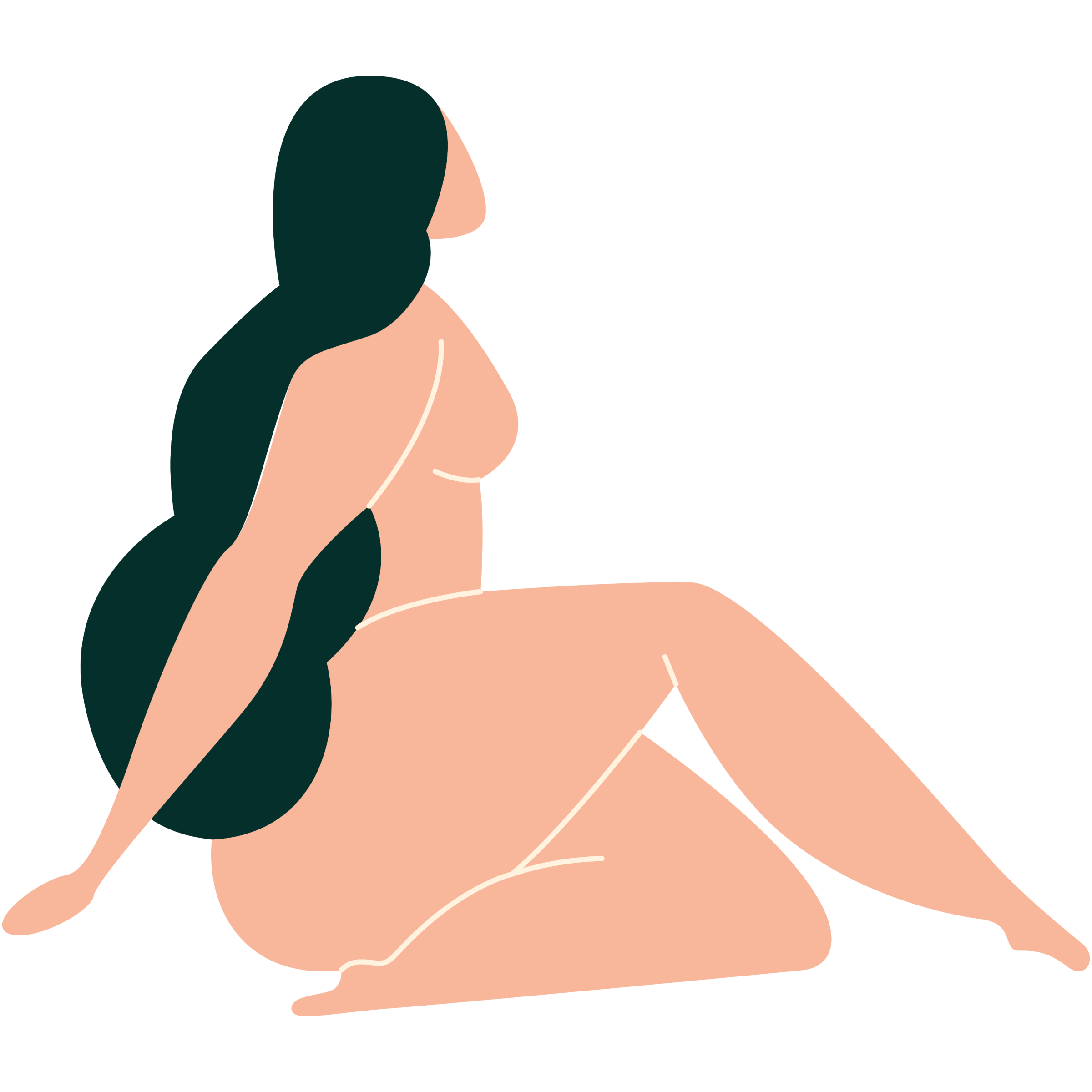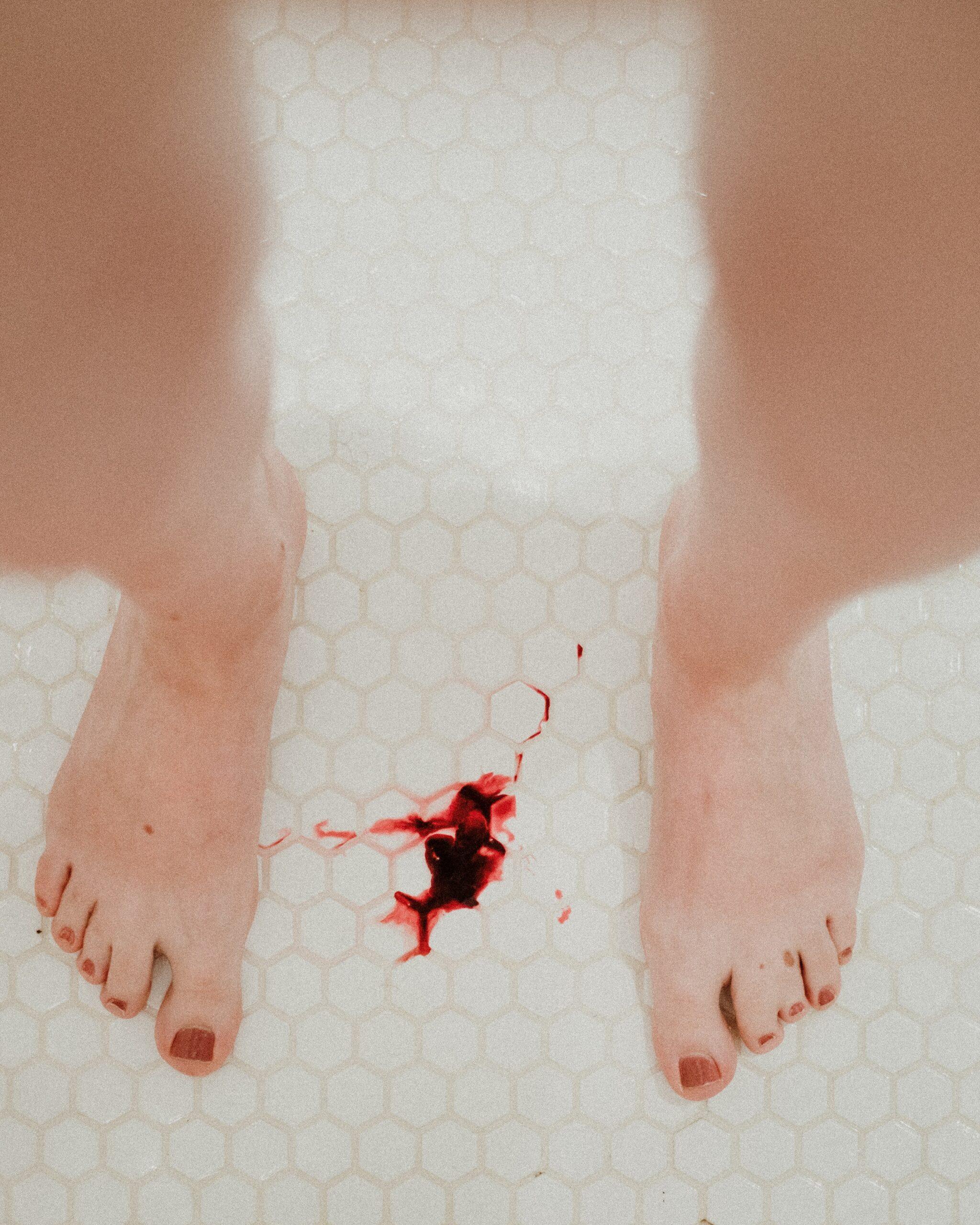
Body
Get to know your body through a better understanding of your anatomy and find the answers to some of your most common questions.

"Women, on average, [each] spend 1,800 days of their lifetimes menstruating, so you would think that we’d be comfortable talking about it by now."
– Topic
Periods have historically and culturally been a marker of womanhood, the bodily cycle that brings new life into this world, yet they remain deeply shrouded in misinformation and shame. This fits into a wider narrative where women's bodies have become the problematic enemy, something to treat, ignore, and at times hate, leaving us feeling like we have no agency over our own bodies.
The stigma runs so deep that we disassociate from our bodies, dread our periods, and avoid learning more about them, not realizing there is so much more to our cycle than just the bleed.
Menstruation, in fact, is just one of the phases of the cycle, and it is these very fluctuations and changes that drive our evolution throughout. Understanding our bodies’ rhythms can allow us to optimize our lifestyles and offer a window into our overall health. Our periods aren't something that happen to us; they are a part of us and they don't have to suck.
In subtle and obvious ways, we are made to feel embarrassed about a natural, biological phenomenon. It has become so normal to “hide” our periods that we don’t even notice how we’ve shifted our behavior to live within what’s acceptable.
Because of that, we end up doing ridiculous things to make sure that no one knows we're menstruating, subconsciously further shaming ourselves for bleeding. Have you ever hidden your pad on your way to to the bathroom? Or walked around with a sweater wrapped around your waist just in case you leaked?
The cultures and societies we’ve grown up in don’t help either. We may like to think that we’ve come a long way since the last generation, but if you stop and think about it, how much has truly changed about our behaviors and attitudes towards periods?
For example, how many times have you been asked, “Are you on your period?" when emotionally reacting to something? How often has your strong or assertive opinion been dismissed as “PMS” or “that time of the month”? Although intended as a joke, these statements and the wider period narrative of women as irrational beings is harming us and contributing to this culture of shame.
Furthermore, we have been systematically programmed to discount and even shame the emotions that arise around our periods. Many of us have been taught that, when we express our emotions, we are acting “crazy,” “dramatic,” or “too much.” When a woman's anger is met with the thought, "Oh, she must be on her period," this severely limits her ability to be taken seriously or affect change.
A key part of shifting the narrative around female bodies starts with changing the way we speak about our own cycles and bleeds.
In English, for instance, terms such as “sanitary napkins” and “menstrual hygiene” reinforce the notion that our periods make us dirty or “sick”. Likewise, in Arabic cultures, although period hygiene practices are important for health, we find extra emphasis on them being “dirty” as opposed to a totally natural process for women.
If we go deeper into the root of languages, we find more embedded shame. For example, did you know that the word “mhastara”, which is Arabic for hysterical, is derived from the Greek word for uterus, "hystera?" In fact, “hysteria” was a diagnosis given predominantly to women for centuries, dating back to Ancient Greece. Considered a psychological disorder, it was a blanket term that was used to describe any ailments that could not be explained at the time (like epilepsy, seizures, miscarriages, or loss of appetite), attributing all of them to ridiculous concepts like a wandering uterus or abnormal womb. It remained a recognized medical diagnosis in the US up until the 1950s.
Terms like this one perpetuate the idea that women are hormonal beings who are not in control of their thoughts, actions, and emotions.
The first step in creating change is acknowledging the problem and understanding how deeply rooted it is. Only then are we able to break the cycle. Small changes can have a major impact, including being aware of the words we use, especially those that discredit ourselves or other women.
Remember, we don't have to love our periods to make them less taboo. Let's commit, together, to taking steps towards normalizing menstruation.
Did you find the answer you were looking for? Is there something we missed? What did you think of this resource? We want to hear from you.
